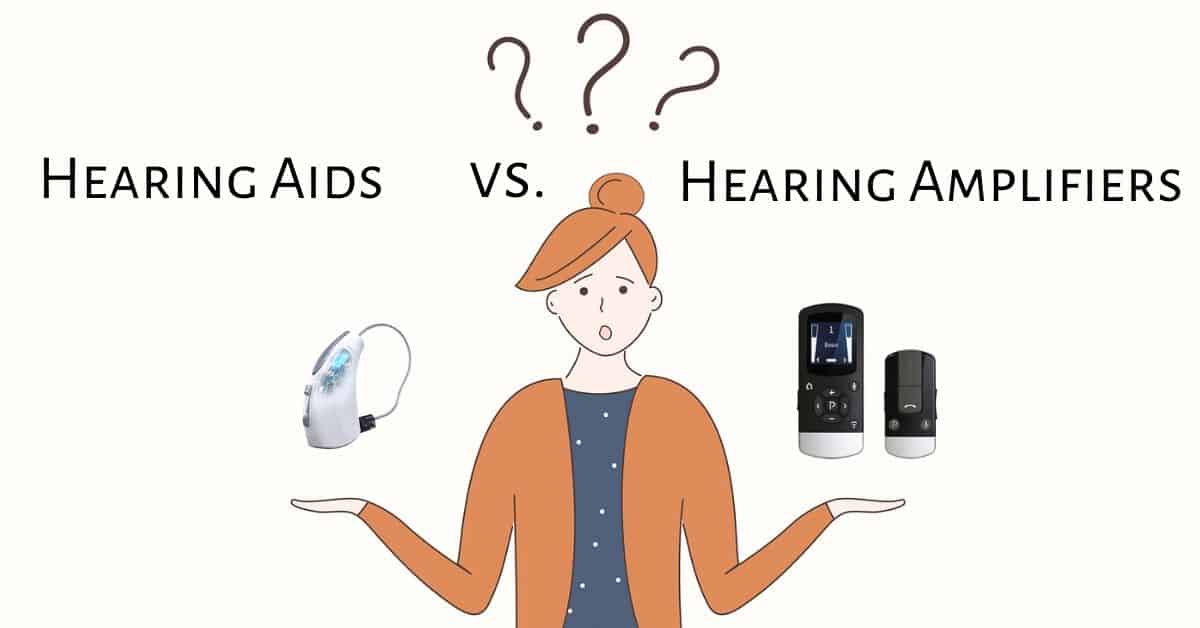- Why You Shouldn’t Do Anything With Your Earwax - April 22, 2024
- Travel Tips for People with Cochlear Implants - April 7, 2024
- How To Have A Great Conversation With People With Hearing Loss - March 22, 2024
Perhaps you have seen ads on television or print for hearing amplifiers. These devices are designed to help keep an ear on sounds that are nearby but difficult to detect, such as a child making noise in a nearby room. These devices, when used correctly, can be very helpful for people without hearing loss, and the range of possibilities is nearly endless for making it possible to hear things that would otherwise be impossible. Birdwatchers love to use hearing amplifiers as a way to capture and identify bird calls that are distant or quiet. However, hearing amplifiers, otherwise known as Personal Sound Amplifying Products or PSAPs, can be harmful to your hearing when they are used as they are not intended. The FDA even issued a warning explaining these risks of misuse. Let’s take a moment to look at PSAPs, how they work, and why they are not appropriate for people with hearing loss.
How does a PSAP work?
Although it might look similar to a set of hearing aids, PSAPs are quite different in their functionality. Hearing aids are designed to boost the volume of certain sounds that are missing from a person’s range of hearing. Hearing loss occurs in a certain frequency spectrum, or range of pitches from low to high, for each person. No two ears are exactly alike, especially when we consider the precision of hearing tests today. Hearing aids step in to assist where an individual has trouble hearing while leaving the rest of the sounds where they were. PSAPs are quite different. Rather than identifying the missing frequencies of sound and boosting them, these hearing amplifiers raise the volume on the entire spectrum of sound. Although it might seem like an easy way to hear sounds that are lost, these devices can actually do more harm than good.
Why can a PSAP be dangerous?
If you are out bird watching or trying to listen to a baby cry in another room, you don’t need to worry about the effects of a PSAP. With brief use at a reasonable volume, these devices are no different than wearing a pair of earbuds to hear music. However, PSAPs are potentially damaging to a person with hearing loss. Rather than only raising the volume of the frequencies that are difficult to hear, these units raise the volume on the entire spectrum, including sounds that were already possible to hear. When the ears are inundated with additional volume in all these ranges, the added sound can cause damage to hearing, even resulting in greater hearing loss. Furthermore, these devices are not designed to be worn for extended periods of time. Just like earbuds or headphones, extended use can be damaging to hearing, particularly when they are paired with already noisy environments. A PSAP adds volume to the ears that cannot be tolerated for long periods of time without causing damage to the hearing ability that remains.
If you have considered getting a PSAP as a cheap and easy way to assist your hearing in general situations, audiologists and hearing specialists recommend against it. Although they can be more expensive, hearing aids are the appropriate way to assist you hearing, tailored to the specific ranges of sound that are missing from your hearing profile. When you are considering how to get the assistance you need, PSAPs should not be used as a way to assist hearing loss and should only be used for particular activities like those mentioned above.
If you have hearing loss, there is good news! Rather than seeking out a PSAP to amplify all the sound in the environment, begin with a visit to your audiologist or hearing health professional. The first step will be to have a thorough consultation and hearing exam to determine the unique nature of your hearing ability. With this information in hand, this professional will be able to recommend a range of hearing aids suited to your condition. Some of these will have special features that enhance your life in ways you didn’t think possible, but even a basic model of hearing aid will be a much safer way to assist your hearing than employing a PSAP to do the job it was not intended to do.

